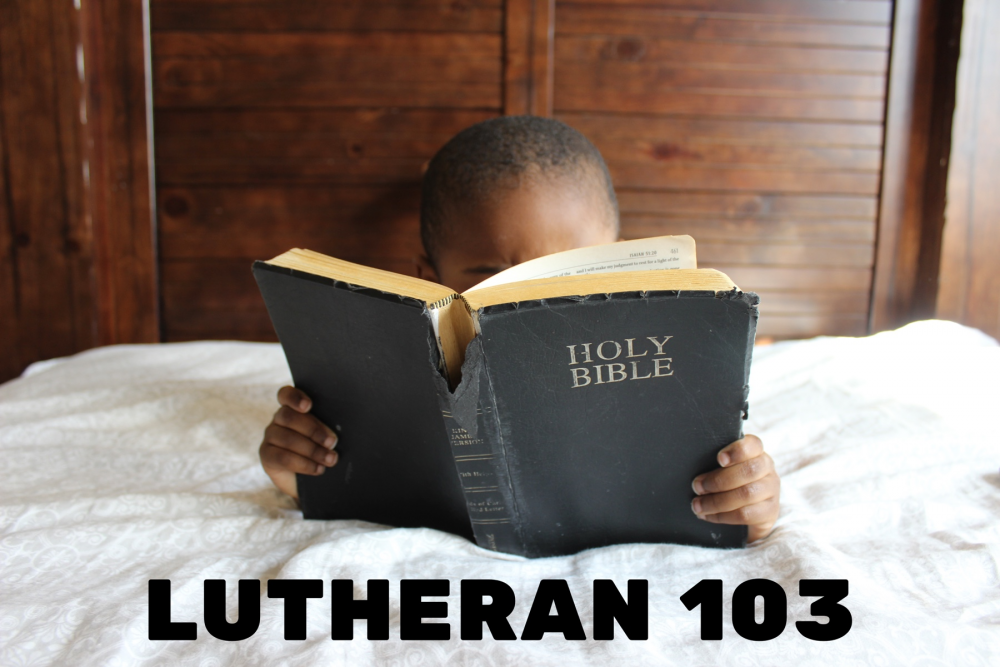In the project of Christian life and ministry there are many creative ways to wander. Have you noticed?
Hierarchical communities may do unity rather well. They look “to the top” – to a single individual, sometimes – for a centering focus and a sense of cohesion. Yet when the top errs, as it must sometime, hierarchies may follow uncritically. They may find themselves wandering collectively from truth.
Congregational communities do flexibility quite well. They maintain a “light footprint,” so to speak, and pride themselves on their adaptability to the challenging world that surrounds them. Yet flexibility may fracture communities, sometimes. They may find themselves wandering from love.
Communities organized around spiritual gifts may wander from their Giver. Communities organized around polity and structure may wander from missional purpose. Our many varieties of Christian community have developed many clever varieties of wandering, I have found. You may have developed a few of your own.
And then there are confessional communities like our own. Lutherans are pretty good at long-term evangelical memory, the preservation of evangelical liturgies and hymnody, the careful study of Biblical traditions, the collection and exposition of theologies and doctrine, and so on. Yet confessions may beget confessionalism; traditions may become traditionalism: this indeed is the characteristic error of communities like ours. And when we wander in this way, we lose everything – including, ironically, the tradition itself.
In the next few months, we aim to describe (ever so briefly) the dynamic center of our confessional worldview. It is often summarized in four “solas” – four “onlies” – that beat at the heart of our faith. We want to be rooted only in Scripture. We receive salvation only by grace, and live it out only by faith. At the center of it all stands only Christ.
The first of our “solas” is mindful, in particular, of our disposition to creative wandering, and is absolutely basic to the other three. We must root the project of Christian living in the living Word of God. Christian faith and service must stand in sola Scriptura.
It is not uncommon to describe a Lutheran worldview by reference to the things that Lutherans do when they gather together – in particular, the way that we “do” the sacraments. You may hear, “Oh, yes, these are folks who baptize their children.” Or, “Oh, yes, these are folks who do the Lord’s Supper at the altar, and with something they call ‘The Words of Institution.’” You may have described our worldview in this way yourself.
It is the wrong place to begin.
A Lutheran perspective begins in the Scripture. We do what we do because we find it in the Bible. We preach what we preach because we read it in God’s Word. This is where our confessional documents always begin: “on the basis of divine and holy Scripture” (AC, Pref, ¶8). “Out of the Word, as from a spring, flows our entire religion,” explained Martin Luther (WLS, p.1465).
Confessing “sola Scriptura” is to confess, in a sense, our proclivity to wander – then to place ourselves under the authority of God’s Word, with trusting intentionality. We will look to God’s Word to define our world, articulate our priorities, and guide us in life and service. We will trust God’s Word more than our emotions, wisdom, training or experience. We would not know about sin, after all, unless the Word of God instructed us. We would not know about grace, unless God’s Word pointed us to the Savior. We would not know hope, unless assured by God’s promises. We would not know faith, unless the Word of God awakened it in our hearts. And we would know nothing whatsoever about the mission of God in the world – and nothing about our role in it – unless shown by the Word of God. “You will be my witnesses…” (Acts 1:8).
As it turns out, “sola Scriptura” is what we have to offer the world, as well. Let us be frank: the world does not especially need our own wisdom, passions, or impressive competencies. We have news to tell. We have a gospel to share. It is a Word that once spoke worlds into being (Genesis 1:3ff) – and still speaks faith into human hearts (2 Corinthians 4:6).
Next month: “Sola gratia.”
Other posts in this Lutheran series:
